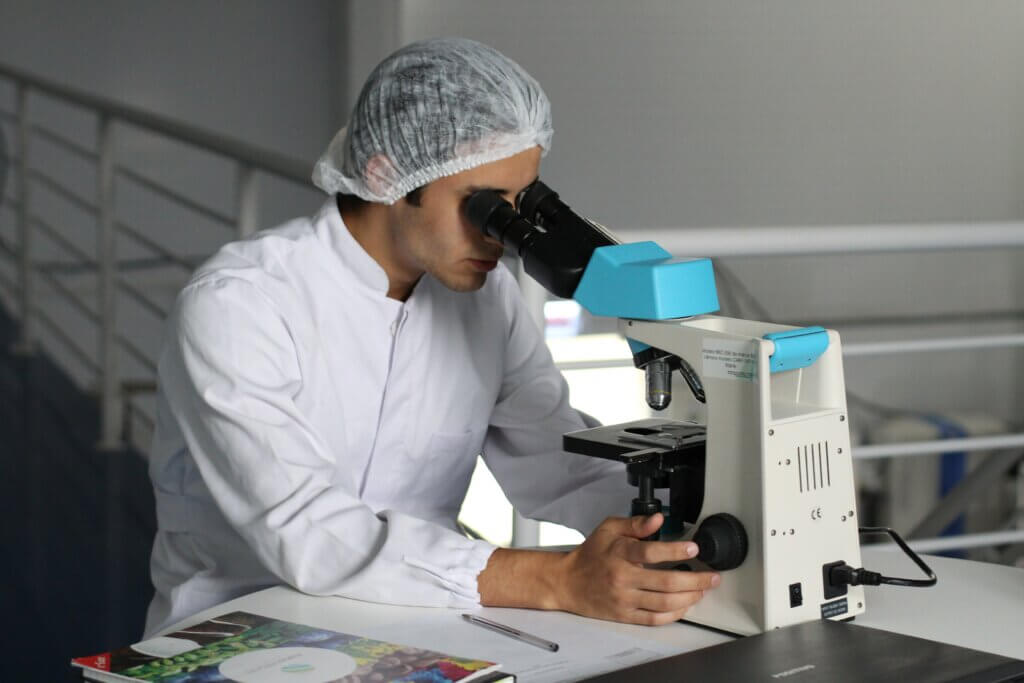What shall I do with a Chemistry degree?
A degree in chemistry can open doors to various career paths. It doesn’t necessarily mean that you will be working with chemicals in a lab. There are so many options available to you, including developing new drugs, finding impurities in meat products, working in sustainable energy and much more. You will also have developed valuable transferable skills that will be applicable to many other sectors and industries.
Career options
Natural career paths following a chemistry degree:
- Research and Development (R&D) Scientist
- Analytical Chemist
- Chemical Engineer
- Pharmaceutical Scientist
- Environmental Chemist
- Forensic Scientist
- Teaching and Academia
- Industrial Sales and Marketing
Transferable skills career paths:
- Quality Assurance/Quality Control
- Regulatory Affairs
- Technical Writing/Science Communication
- Environmental Health and Safety
- Data Analysis/Statistics
- Intellectual Property/Patent Law
- Pharmaceutical Sales/Marketing
- Entrepreneurship
These should only be used as a guide. Many employers will accept applications from students that have studied various degrees.
Work experience
Those wanting to find a career within chemistry should investigate doing an industry placement – pre-entry work is valued highly. Your careers department at your university should be able to help you identify these. You can also see whether there are any voluntary or part-time roles in your local area by reaching out to chemical companies to enquire about any internships or work experience schemes.
Having pre-entry work will show that you are passionate and committed to a career in the sector, but laboratory experience can take time to secure. If you are still looking for work experience within a laboratory, look for positions within a different department, as this will still teach you the industry knowledge needed to succeed, and you will be able to see first-hand how chemistry is applied in the workplace.
Previous work experience will enable your application to stand out amongst your competition. It will also provide you with the opportunity to network and build a list of contacts who may become useful in the future.

Typical employers
There will be many options available to you – whether this be in the chemical industry or not. Typical employers include:
- Chemical and Pharmaceutical Companies
- Government Agencies and Research Institutions
- Academic Institutions
- Environmental and Conservation Organizations
- Forensic Laboratories
- Analytical and Testing Laboratories
- Consulting Firms
- Pharmaceutical Sales and Marketing
- Energy and Petrochemical Companies
- Food and Beverage Industry
How to enhance your CV
Through your degree, you will have learnt specialised laboratory skills, but you will also have developed skills from overlapping degrees such as biology, medicine, physics and engineering. You will also have a deep understanding of the different ethical regulations when it comes to both environmental impact and sustainability. Alongside this, you will have developed additional skills which will be transferable. Make sure the following skills are highlighted on your CV:
- Laboratory Techniques
- Research and Data Analysis
- Scientific Writing and Communication
- Molecular Biology Techniques
- Fieldwork and Data Collection
- Data Management and Bioinformatics
- Laboratory Safety and Compliance
- Teamwork and Collaboration
- Problem-Solving and Critical Thinking
- Adaptability and Time Management
Further study
Many chemistry graduates go on to further study as it allows them to expand their knowledge in different areas of chemistry, including organic, inorganic, physical and analytical chemistry. Others will choose further study because they would like to specialise in a particular field, such as cheminformatics, biochemistry, forensic nanotechnology and forensic investigation.
This deep understanding of the industry and its nuances is highly valued by employers as you will have a greater knowledge of what a role in the industry will entail and the practical skill set that you can apply from the outset.

What are chemistry graduates doing?
Upon graduation, many chemistry graduates have been employed as natural and social science professionals (21%). However, the skills and knowledge developed throughout a chemistry degree have meant that careers in engineering, production, teaching, finance, IT, business, research and admin have also been popular choices.
Related Courses
The BSc (Hons) Chemistry with Education will provide you with both extensive theoretical knowledge and practical skills in chemistry and professional skills through work-based learning to ensure you are fully equipped to meet the demands of being a Chemistry teacher in secondary (high) school. The overall aim of the course is to allow you to develop the knowledge and skills required to teach Chemistry at Secondary School level. You will study Chemistry to Honours level and will also develop your teaching skills in years 3 and 4 by taking modules in Education.
Our MSc Chemical Engineering is ideal if you are a graduate in chemical engineering or other related discipline and are looking to upgrade your technical abilities and equip yourself with advanced knowledge in the fields of chemical and process engineering.
In addition to further developing your technical expertise and knowledge, this master’s course will also enable you to develop interpersonal and transferable skills at a level that a Chemical/Process Engineer would be expected to have to function in an advanced engineering and business environment as senior engineer or manager.
Our newly redeveloped IBMS-accredited MSc Advanced Biomedical Science programme gives you the skills and knowledge to advance (or build towards) a career as an NHS biomedical scientist. The proficiencies covered are also transferable to careers within the bioscience sector and research.


